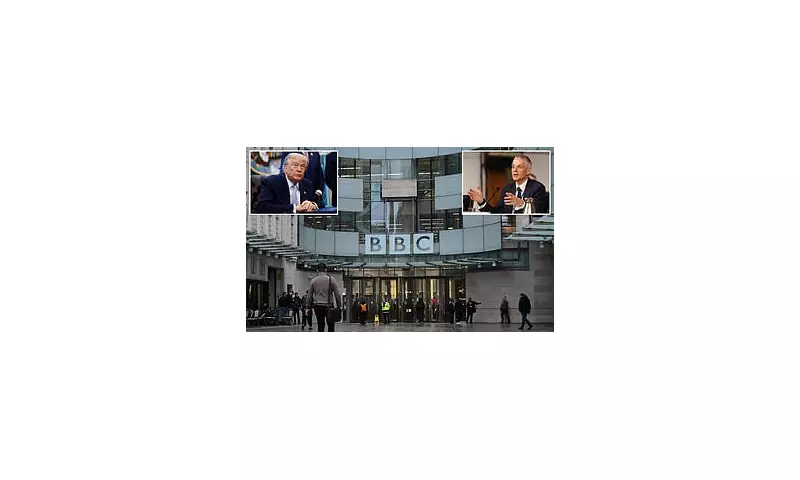
BBC Faces Financial Crisis as Licence Fee Refusals Soar
The BBC suffered a staggering financial loss exceeding £1.1 billion last year, driven by a record number of households refusing to pay the television licence fee. A damning report from the Commons Public Accounts Committee (PAC) reveals that one in eight households now decline to fund the broadcaster, marking a severe threat to its traditional funding model.
Mounting Evasion and Enforcement Failures
According to the PAC findings, a record 3.6 million households stated they did not wish to use BBC services, an increase of 300,000 from the previous year. This defiance resulted in a direct revenue loss of £617 million. Furthermore, the report highlighted that 2.9 million viewers actively evaded the television tax, costing the corporation an additional £550 million.
The BBC attempted to counter this by increasing visits to unlicensed households by 50 per cent. However, this aggressive enforcement strategy failed to yield results, with no corresponding increase in licence sales or prosecutions. In fact, prosecutions fell by 17 per cent in the year to December 2024, continuing a long-term decline that began in 2017.
The PAC concluded that the BBC is "not doing enough to enforce collection of the licence fee", creating an unfair situation for the majority of households who do pay. The report warned that without visible enforcement, compliant payers may begin to question the system's fairness.
Scandals and Strategic Missteps
The publication of this critical report comes at a turbulent time for the broadcaster, which has been rocked by a series of scandals. These events culminated in the resignation of Director-General Sir Tim Davie. His departure was closely linked to a major bias row concerning the doctoring of a Donald Trump speech for a Panorama episode.
The edited clip made it appear that the former President told supporters he would walk to the US Capitol with them to 'fight like hell', leading to accusations of anti-Trump bias. The BBC apologised, stating the edit created a "mistaken impression" and was an "error of judgment," but refused to pay financial compensation after being threatened with a multi-billion dollar lawsuit.
The report also criticised the corporation's failure to modernise, noting it has "not adopted opportunities to digitise the licence fee". This has led to missed cost-saving opportunities and poorer customer engagement. Around 40 per cent of households still receive a paper licence by default, and the BBC has set no target to increase paperless uptake.
Relevance and Future Under Threat
The PAC warned that the BBC’s core mission to "serve all audiences" is at serious risk. Younger audiences are increasingly choosing other media providers, while the corporation's "digital first strategy could risk alienating non-digital audiences." The report found that only 51 per cent of younger people feel the BBC reflects them, and their overall use of BBC services is significantly lower than other age groups.
Issues with regional services were also a key concern. The PAC stated that reforms, such as restructuring regional news hubs, may have "unintentionally diluted the BBC's connection with the communities it aims to serve." Decisions labelled as "local", like moving operations to major cities, risk overlooking the identity and needs of smaller communities.
Compounding these challenges, the BBC is behind target in developing new intellectual property (IP), which limits potential long-term revenue streams. The highly successful children's series Bluey was cited as an example of the commercial value the corporation is failing to harness effectively.
PAC chairman, Conservative MP Sir Geoffrey Clifton-Brown, summarised the situation, stating: "The BBC is an organisation under severe pressure... the ground is shifting beneath the BBC's feet." He emphasised that without a modernised approach focused on online viewing, faith in the licence fee system will ebb away.
In response, a BBC spokesperson acknowledged that "the licence fee needs reform" and confirmed the corporation is exploring options to make its funding model "fairer, more modern and more sustainable." The broadcaster's funding model is set to be reviewed in the upcoming Charter Review as it faces intense competition from global streaming services.





